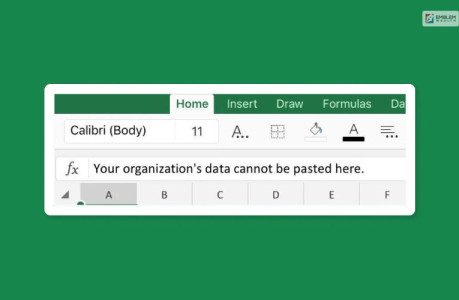Cloud Computing in Distance Learning: A Revolution For Online Education

The introduction and evolvement of technology have significantly changed the educational landscape.
One of the most significant technological advancements that have fundamentally altered how we learn is cloud computing. Research shows it has already given birth to lots of benefits for students and learners,
Thanks to cloud computing, students can now use resources, collaborate with peers, and engage in learning activities from anywhere.
The benefits of cloud computing for online education are covered in this article. Alongside the benefits, it also emphasizes how it has aided its growth and success.
Cloud Computing: What it Has To Offer In Distance Learning
You got it right; cloud computing has brought massive development to the education sector in general and the distance learning mode in particular.
Now, you can optimize various cloud-based learning management systems to benefit your learning. However, we discuss how you can optimize cloud computing in distance learning.
Flexibility And Adaptability
Thanks to cloud computing, which has eliminated time and geographic boundaries. Distance learners now have access to levels of accessibility and flexibility never before possible.
Moreover, students can access their course materials and homework whenever they want from any device with an internet connection.
Whether using a laptop, tablet, or smartphone, cloud computing enables students to learn on their own terms. It also helps accommodate their particular schedules and learning preferences.
With this level of accessibility, students who might have to juggle work or family responsibilities can still pursue their education.
With this level of accessibility, students who might have to juggle work or family responsibilities can still pursue their education. They can also use reliable Writing Universe services to ease their college workload. Qualified writers can help them complete their assignments on time and at affordable prices.
Collaboration And Communication
One of the critical advantages of cloud computing for distance learning is its capacity to facilitate seamless collaboration between students and educators.
Students can communicate with their classmates and teachers in real time using cloud-based tools and applications. The discussion forums, virtual classrooms, and shared documents are notable examples.
They can participate in conversations, collaborate on group projects, and receive quick feedback. All contribute to developing a sense of engagement and community.
This stimulating learning environment improves the overall educational experience, which promotes critical thinking and problem-solving skills.
Cost-Effectiveness
The cost-effective solution that clouds computing offers for distance learning can help educational institutions as well as individual students. Traditional learning methods frequently involve significant financial investment in the physical infrastructure, such as classrooms, libraries, and equipment.
On the other hand, cloud-based platforms do away with the need for such investments because resources are stored and accessed online.
Additionally, cloud computing enables businesses to scale their resources according to demand, which is cost-effective. Education and online learning platforms are made more accessible and affordable. Cloud-based educational resources are frequently less expensive for students than traditional textbooks.
Read Also: The Benefits Of Cloud-Based Property Management Systems For Property Owners And Managers
Easy Access to Educational Resources and Its Availability
The cloud-based education platform benefits students who are learning the materials from a distance. They improve the physical as well as the digital access to your academic resources. It is now much easier for students to access the same materials and learning resources.
Virtual solutions like cloud computing also help you provide ongoing learning opportunities for the students.
At the same time, you can implement the technology by complying with the policies and the guidelines of Web Content Accessibility (WCAG).
The WCAGIS is a set of recommendations that improve web-based content accessibility. Even the distant learner who is physically challenged can use this to optimize the personalized instructional program. It addresses their core needs, and therefore, one can easily say that personalization enables better access to resources.
Scalability And Adaptability
Cloud computing provides unmatched scalability and adaptability for distance learning programs.
It is simple to scale the cloud infrastructure of educational institutions to accommodate changes in demand and student enrollment. Institutions can expand the scope of their online programs thanks to this flexibility without any physical limitations and restrictions.
The ability to adapt lesson plans and course content in response to student feedback and changing market trends is another benefit of cloud computing for educators. Due to its adaptability, distance learning is kept current and in line with shifting educational requirements.
Data Security And Backup
One of the main problems with online learning is the security of student data and course materials. Cloud computing provides robust security measures to protect sensitive data.
Cloud service providers use encryption, access controls, and regular backups to protect the integrity and confidentiality of customer data.
By storing data in the cloud, students and educational institutions can lower their risk of data loss due to hardware failures or natural disasters. Both students and teachers benefit from this level of data security because it gives them peace of mind and allows them to focus on the learning process.
Hence, the data security and backup facility powered by Cloud computing is essential in ensuring the data security and the distance learners can best optimize it.
Supporting A Wide Variety Of Learning Styles
Cloud platforms can offer various learning approaches to facilitate e-learning. They include student discussion forums, quizzes, and more. You can turn your cloud-based e-learning platform into an engaging multimodal learning site.
Thousands of students are making the most out of this e-learning platform. Now, as a distance learner, you can find ease. It will help you grow as an individual.
The Future Of Cloud Computing
Cloud computing is bringing a change in the way that distance learning is done, and it has many benefits for both students and teachers as well as educational institutions.
Its accessibility, adaptability, and collaborative features enable learners to take part in personalized and interactive learning experiences.
The benefits that one gets from cloud-based platforms are crucial in the present context of learning, governed by the distance mode.
By reducing costs, increasing resource availability, and ensuring data security, cloud computing increases education’s accessibility, affordability, and effectiveness. As technology advances, cloud computing will undoubtedly play a significant role in the future of distance learning, allowing students to learn from anywhere in the world.
Read Also:

























Leave A Reply